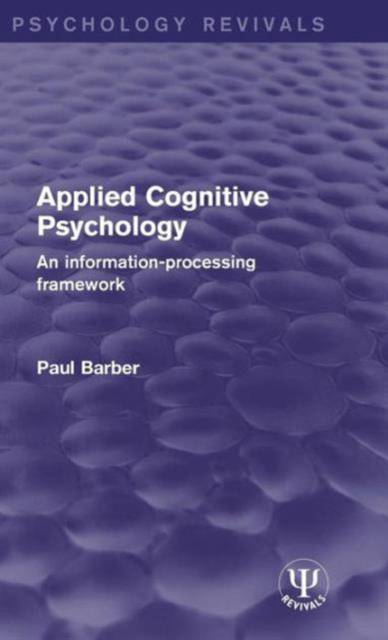
- Retrait gratuit dans votre magasin Club
- 7.000.000 titres dans notre catalogue
- Payer en toute sécurité
- Toujours un magasin près de chez vous
- Retrait gratuit dans votre magasin Club
- 7.000.0000 titres dans notre catalogue
- Payer en toute sécurité
- Toujours un magasin près de chez vous
Description
Originally published in 1988 Applied Cognitive Psychology draws on the psychology of perception, attention, and cognition to give an understanding of some everyday activities and skills. Paul Barber focuses on processes involved in selecting simple actions, face perception, reading, and tasks requiring attention skills. He uses practical problems as starting points for discussion, including mental overloading in air-traffic controllers, cooker-hob design, the use of Photokit/identikit, and reading from computer screens. The book also examines the strengths and limitations of the basic analytical approach of 'information-processing' in psychology.
As well as providing a textbook for students of psychology and ergonomics, Applied Cognitive Psychology will still be welcomed by those from other disciplines - management studies, education, sports science - who need to understand skilled behaviour in applied settings.
Spécifications
Parties prenantes
- Auteur(s) :
- Editeur:
Contenu
- Nombre de pages :
- 224
- Langue:
- Anglais
- Collection :
Caractéristiques
- EAN:
- 9781138121140
- Date de parution :
- 01-12-15
- Format:
- Livre relié
- Format numérique:
- Genaaid
- Dimensions :
- 140 mm x 216 mm
- Poids :
- 426 g

Les avis
Nous publions uniquement les avis qui respectent les conditions requises. Consultez nos conditions pour les avis.






